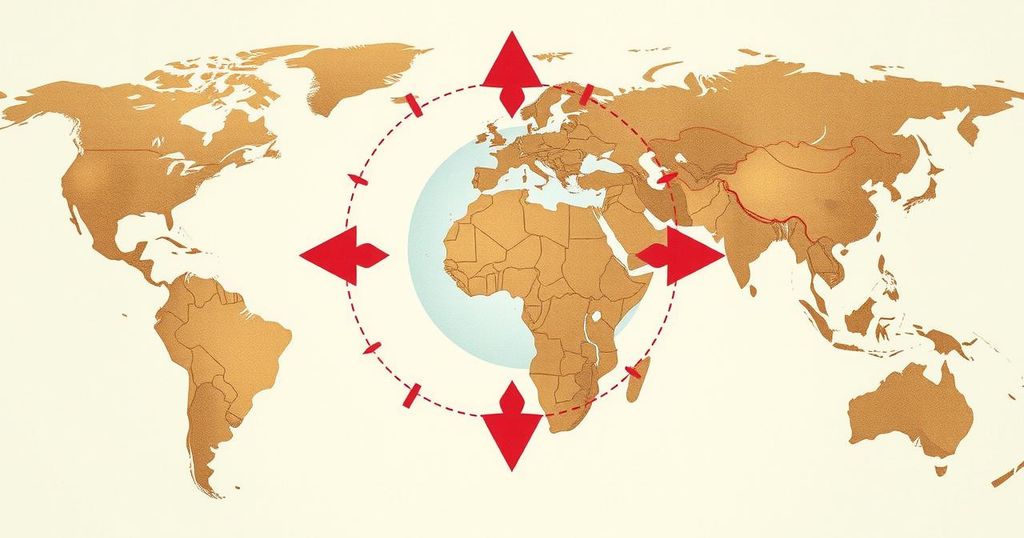Responses of Canada, China, and Mexico to Trump’s Tariffs

U.S. President Donald Trump imposed tariffs on imports from Canada, China, and Mexico, leading to urgent retaliatory measures from each country. Canada plans 25 percent tariffs on U.S. imports, while Mexico initiated counter-tariffs and China announced intentions to challenge the measures at the WTO. Economic experts predict these tariffs could hinder growth and escalate inflation, affecting global trade.
In response to President Donald Trump’s newly imposed tariffs, Canada, China, and Mexico have formulated distinct strategies. Trump executed three executive orders, placing a 10 percent tax on Chinese imports and a 25 percent duty on goods from Canada and Mexico, citing a need to combat illegal immigration and drug trafficking as justification. These tariffs, effective starting early Tuesday, will include even low-value Canadian imports, previously duty-free.
Canada’s Prime Minister Justin Trudeau announced retaliatory measures with equivalent tariffs of 25 percent on imports from the United States, targeting American beverages, fruits, and various consumer goods, asserting the need to defend Canada’s economic interests. He emphasized the strength of the US-Canada partnership and lamented the divisive nature of Trump’s actions.
Mexican President Claudia Sheinbaum also initiated plans for counter-tariffs on US goods, expressing a desire for dialogue but indicating that Mexico could not remain passive. Reports indicate potential tariffs on products such as pork and cheese, while Economy Minister Marcelo Ebrard criticized the tariffs as a violation of the US-Mexico-Canada Agreement.
China’s response has been relatively measured, condemning Trump’s tariffs but expressing openness to dialogue to prevent further conflict. China announced intentions to challenge the tariffs at the World Trade Organization, characterizing them as a breach of international trade rules. The Chinese government also rejected accusations regarding fentanyl trafficking, emphasizing their cooperation with US anti-narcotics efforts.
Experts are predicting that these tariffs could adversely affect economic growth and increase inflation across all three countries. Some analysts speculate that the tariffs may undermine the US’s trade relations with its closest partners while benefiting China in the long run.
Overall, the responses from Canada, China, and Mexico illustrate a broad discontent with Trump’s tariffs, emphasizing each country’s commitment to protecting their own economic interests while navigating a complex trade and diplomatic landscape.
In this context, experts highlight the potential implications for global trade dynamics, suggesting increased tensions and economic challenges stemming from these protective measures.
The recent imposition of tariffs by U.S. President Donald Trump has created significant international waves, prompting a swift response from Canada, China, and Mexico. Utilizing an emergency sanctions law, Trump justified tariffs aimed at addressing issues related to illegal immigration and drug trafficking. Previously free trade relations have deteriorated as affected countries prepare countermeasures, highlighting the potential for escalating trade tensions and disrupting established economic partnerships.
In summary, the tariffs initiated by President Trump have elicited robust responses from Canada, China, and Mexico, each implementing retaliatory measures and expressing severe disapproval. The implications of these tariffs extend beyond immediate economic repercussions, suggesting a reevaluation of longstanding trade relations and potential future conflicts. Experts warn that such actions could harm economic growth and fuel inflation, leading to broader ramifications in global trade dynamics.
Original Source: www.aljazeera.com








